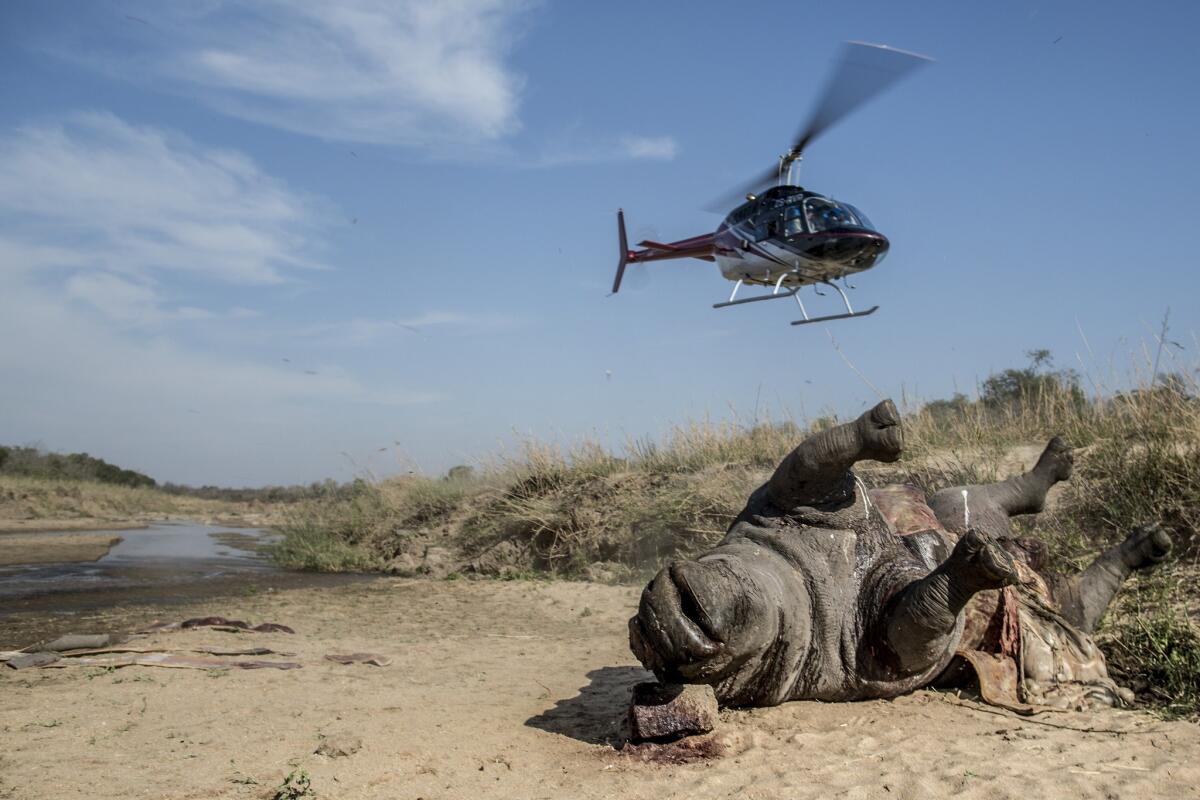South African brothers charged in illegal rhinoceros hunting scheme

- Share via
Reporting from Washington — For five years starting in 2005, prosecutors say, two South African brothers sold American hunters on trips to hunt wild rhinoceroses. The brothers told prospective clients at hunting expos and gun shows across the United States that the animals were “problem” rhinos in their homeland. Hunters were told they would pay a discounted rate to shoot them, pose for photos with their prey and mark down their kills in record-keeping books, according to authorities. There was one catch: The hunters couldn’t export any of their trophies home.
That’s because the two men were actually selling illegal hunting trips to American big-game hunters eager to hunt one of Africa’s most storied creatures, federal prosecutors alleged at an Alabama news conference Thursday. The carcasses were used to fuel a black market trade in rhinoceros horns, prosecutors say, as the two men would remove many of the horns from the hunted rhinos and sell them on the underground market.
In one case, investigators said, one of the brothers used a chainsaw to cut off a horn from a rhino that was sedated and still alive.
Poaching of rhinoceros horns is a lucrative trade fueled by a demand from some communities worldwide that believe the horns have medicinal benefits, officials said. Horns can fetch up to $35,000 per pound on the black market.
The brothers, Dawie Groenewald, 46, and Janneman Groenewald, 44, face charges including conspiracy, mail fraud, money laundering and violating the Lacey Act, which is a federal anti-poaching law. They were indicted in Alabama, where one of the men lived and kept bank accounts. The elder Groenewald is also charged in South Africa.
“The fact that defendants used American hunters to execute this scheme is appalling -- but not as appalling as the brutal tactics they employed to kill 11 critically endangered wild rhinos,” Dan Ashe, director of the U.S. Fish and Wildlife Service, said during a news conference announcing the charges.
Eleven American hunters have been identified as customers of the brothers’ safari operation, but they were not charged. Ashe said hunters still bore a responsibility to ensure their guides were not breaking the law.
“Frankly, these hunters should have known better,” he said.
Rhinoceroses have been so widely targeted by poachers that conservation groups have placed all five rhino species on their lists of threatened animals worldwide. Rhinoceros populations vary by species, but some have fewer than 100 members, according to the International Rhino Foundation.
South Africa reported more than 1,000 rhinos poached in 2013, its highest number ever recorded. The indictments are among a series of arrests and prosecutions from a federal investigative program focusing on the illegal rhino trade.
The brothers are in South Africa, officials said, and the United States will seek their extradition. An attorney for the Groenewald brothers did not respond to phone calls and email requests seeking comment.
Follow Matt at @mtthnsn
More to Read
Sign up for Essential California
The most important California stories and recommendations in your inbox every morning.
You may occasionally receive promotional content from the Los Angeles Times.













